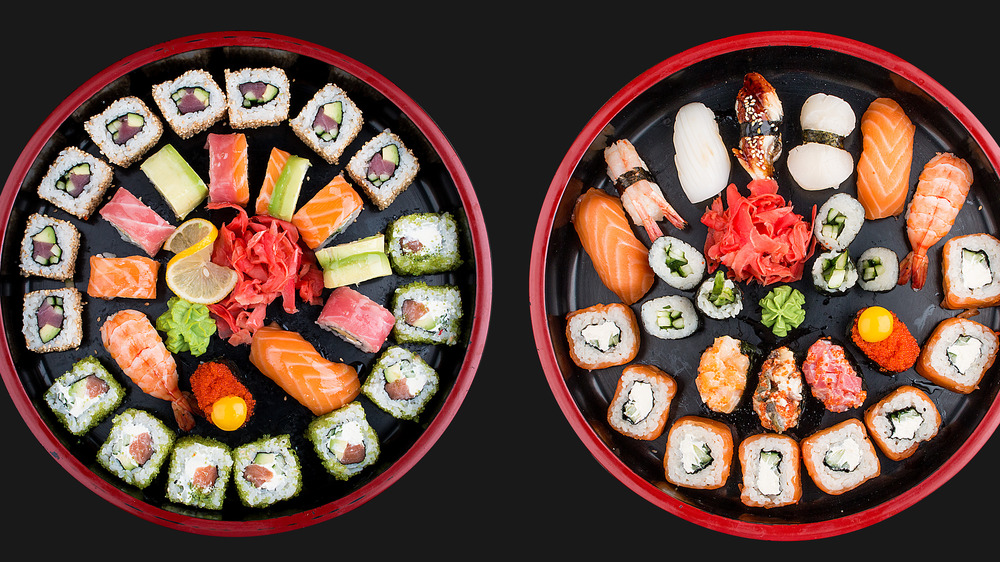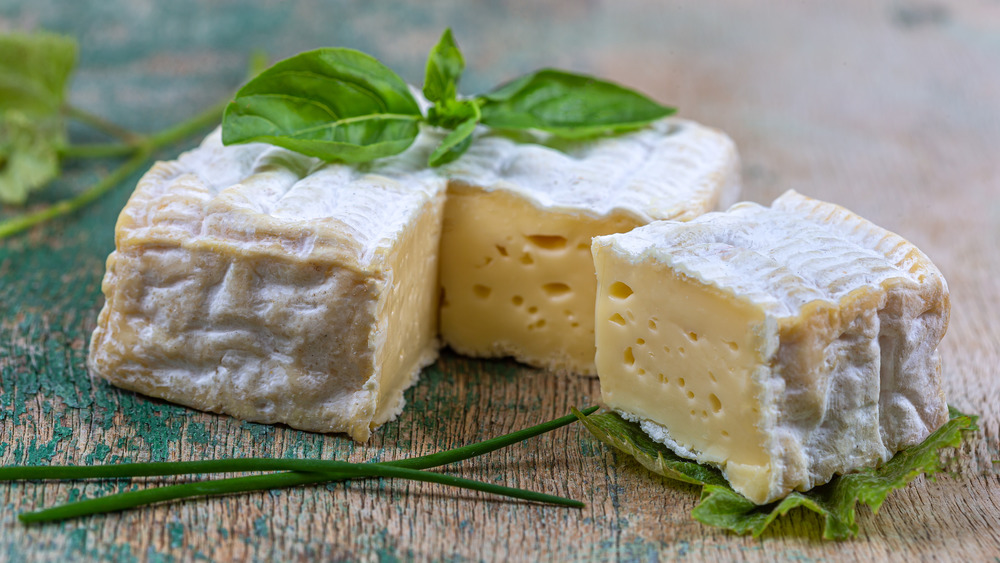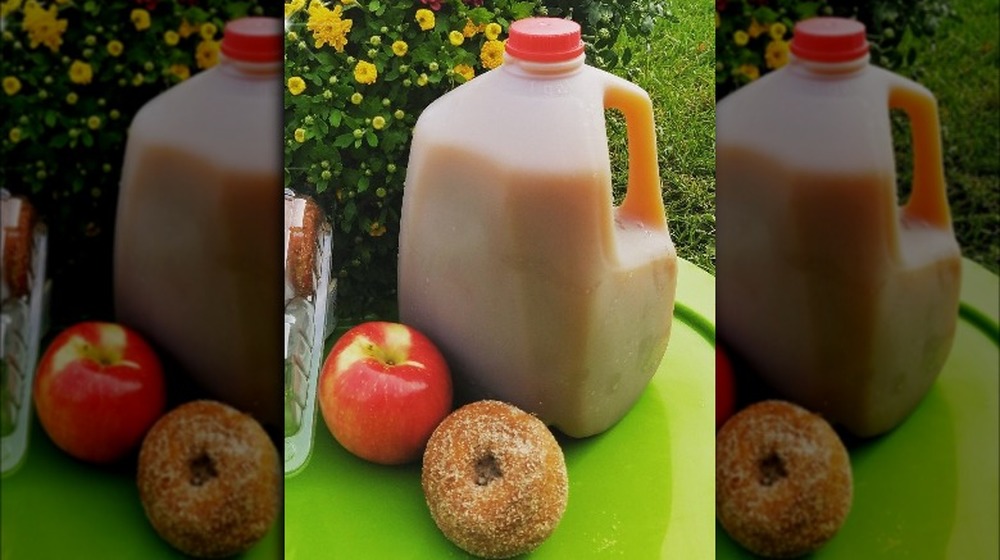You Should Never Eat These Foods At A Party
We may receive a commission on purchases made from links.
Every year come holiday time, there are countless articles telling you about all of the perils and pitfalls of holiday parties, particularly as these are likely to affect your waistline. You are told to swap out eggnog for champagne and to pass up fruitcake (no hardship there) and cookies (some hardship) in favor of nibbling on crudites dunked in fat-free cottage cheese dip instead. No matter how fun and festive they try to make these "simple swaps" sound, it always leaves you wondering, why should I even bother attending these parties in the first place, if I can't enjoy the food? Might as well just stay home and eat a pint of Ben and Jerry's kale-topped rice cake instead.
Nutritionist Toby Amidor, MS, RD, CDN, FAND and author of The Best 3-Ingredient Cookbook, is less concerned about the affect party food might have on your diet, however, as to whether or not it is likely to make you sick. She spoke to us about several types of foods you should stay away from if you want to minimize your risk of food poisoning.
Take a pass on any uncooked meat or fish
While Amidor says that "foods like tuna or beef tartar[e] may seem like a 'fancy' thing to serve at parties." She warns that eating uncooked meat of any kind poses a food safety threat, particularly to anyone in a high-risk group. She says that the elderly, also children under age 6, and women who are pregnant or breastfeeding should stay away from these foods, as should anyone who has a compromised immune system. Even if you do not fall into any of those groups, you should still exercise caution, and this also extends to eating oysters on the halfshell, sushi, or any other type of raw non-plant-based food. Amidor informs us that in a party situation, these foods may be allowed to sit out at room temperature for a number of hours, something that makes them "even a greater risk as the bacteria that is possibly present can multiply rapidly."
If you feel put out at the thought of having to pass up your favorite sashimi and say no to ceviche, just be grateful that you're not a member of the royal family. Royals are forbidden from eating any type of shellfish not prepared in the palace, and they can't even order their steaks rare (although they don't have to have them quite so well-done as was the preference of a certain former POTUS).
Brie cheese is best avoided
Amidor admits that brie cheese is best served at room temperature in order to bring out its flavor, but says that "leaving out this potentially hazardous food for over two hours at room temperature can compromise guests." As most parties do tend to last over two hours, you might want to eat the brie early, if at all. Amidor says that brie might contain the bacterium Listeria monocytogenes, something that can cause listeriosis. According to the CDC, each year 1,600 are sickened with this disease, and about 260 of them die from it. At greatest risk are those same people cautioned against eating raw meats: the young, the old, the immune-compromised and the pregnant. Amidor adds that women in their third trimester of pregnancy, may even experience still birth as a result of listeriosis.
If you are the one giving the party, you don't have to give up on the idea of serving brie altogether. Amidor says that her recommendation is to serve it in small batches, so as to cut down on the amount of time it spends out of the refrigerator — these mini brie bites from Aldi might be just the thing to help with portion control. The European Food Safety Authority also reports that heat can help kill this specific bacteria. So cooking your brie could be a safer, as well as fancier, way to serve it.
Run, don't walk, away from raw milk cheese
You know who's a huge fan of unpasteurized cheese? Prince Charles, that's who. He was lionized by French cheesemakers after an impassioned 2015 speech in which he decried the European Union regulations banning cheeses made with "lait cru," or unpasteurized milk. "In a microbe-free, progressive and genetically engineered future, what hope is there for the old-fashioned Fourme d'Ambert, the malformed Gruyere de Comte or the odorous Pont L'Eveque?" asked the king-to-be (via The Telegraph), and for this question, we have no answer. Amidor, on the other hand, might have told him sorry, Charlie, but that stuff's just not safe. She says that raw milk and cheese should never be served at a party "because it has not been pasteurized, it has a higher risk of containing pathogenic microorganisms and getting someone sick."
If you do decide to risk eating unpasteurized cheese on your own, however, you may feel somewhat reassured to know that the U.S. does have certain safety regulations in place since we answer to a higher authority than a hereditary monarchy: personal injury lawyers. The FDA will permit the sale of raw milk cheeses only after those cheeses have been aged for at least 60 days. According to tests they've carried out, the aging process by itself is sufficient to kill off most of the bacteria responsible for food poisoning.
Unpasteurized juice is also a no-go
While we often associate pasteurization with milk and milk products, ThoughtCo says it's also used for eggs, wine, beer, nuts, canned good, and fruit juices. While most juice you buy in the grocery store has been pasteurized, it's possible to pick up a jug of unpasteurized juice or cider at a farm stand of farmer's market. Amidor thinks you should resist the urge to buy these, or, if you do give in to temptation, at least drink that juice yourself and don't serve it to party guests. Also, if you're attending someone else's party and you have any reason to suspect them of farm-to-table tendencies rather than being strictly a supermarket shopper, you should avoid drinking the juice.
If it's mulled cider, however, then it may be okay. While Amidor says that unpasteurized juices and cider can harbor pathogenic microorganisms and have been linked to the spread of the E. coli infection, she advises that once again, heat is your friend. She says to "boil [unpasteurized juice or cider] for 10 minutes before serving," at which point it should be safe to serve. While you're boiling it, why not toss in some peppercorns, orange peel, and star anise, a la Ina Garten's cider recipe? Garten uses fresh cider to make this and she's still alive and kicking after drinking a bunch of it, so mulling is evidently an effective germ killer. (Either that, or it's the booze Ina spikes her cider with).




